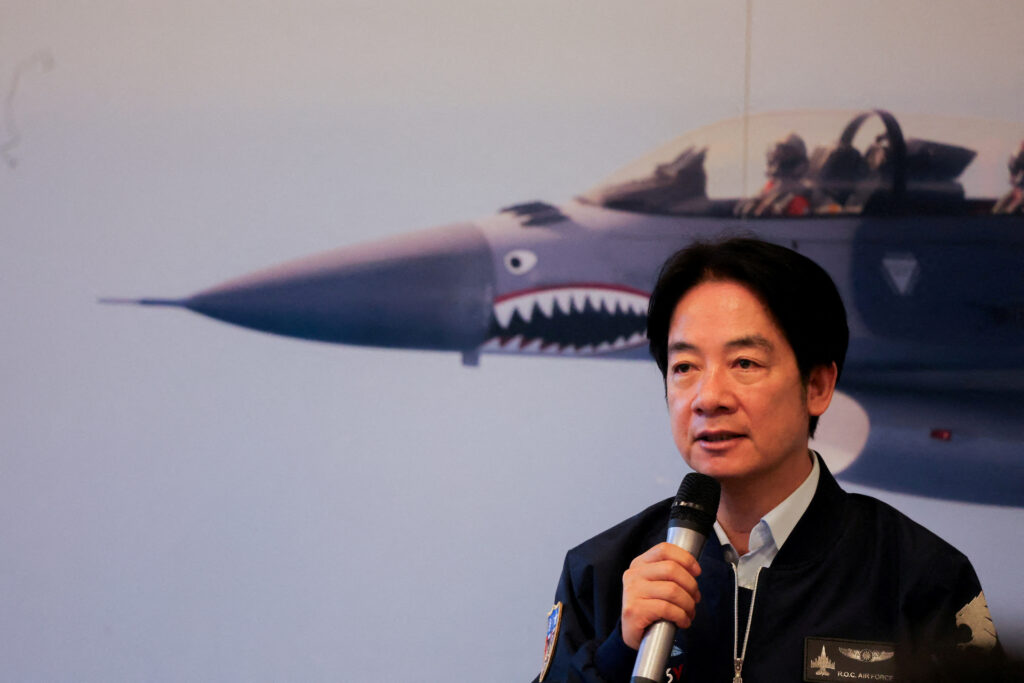As Lai Ching-te celebrated his election victory, it was clear that the situation in Taiwan was far more nuanced than the result indicated. While Lai won by a fair margin, he fell far short of a majority. Many outside of Taiwan assume that rejecting a Chinese identity automatically equates to support for the Democratic Progressive Party (DPP). But this assumption overlooks the complexity of Taiwanese identity.
The DPP has long styled itself as being synonymous with Taiwanese autonomy and freedom. But in this latest election, the public was more concerned with economic development than cross-strait relations. Even educational reform seemed almost as important as tensions with mainland China.
Taiwanese people have consistently demonstrated that economic prosperity and peace are their highest priorities. DPP support dropping by 17 per cent between elections is further evidence of this. Though much of this stagnation can be attributed to forces outside of the DPP’s control, such as COVID-19, people are still holding the DPP accountable. Yet there is a noticeable and consistent increase in the number of people embracing a Taiwanese identity.
Few people alive remember a time before a de facto independent Taiwan. This is a common historical trend, where populations in diaspora tend to develop ethnic identities distinct from the mother country. Another reason that more people are embracing a Taiwanese identity relates to the need to separate the ideas of party policy and identity. The people’s ever-growing desire to be considered solely Taiwanese increased steadily during periods of both DPP and Kuomintang (KMT) governments. Though democratic preferences may oscillate, there is a persistent and growing desire among Taiwanese people to be recognised as distinct from mainland China.
These issues will considerably affect the new administration. Lai will face a more difficult environment in which to get legislation passed than his predecessor. Require KMT assistance when passing bills will ensure that Lai’s more independence minded ambitions will remain just that — ambitions. Even the DPP’s flagship foreign policy initiative, the South Bound policy, did not make it as one of the top five biggest issues to voters.
But this is no cause for Lai to despair. Given that the DPP is only a single vote short in the Legislative Yuan, they don’t need to sway many members to secure their political agenda. Should the DPP secure more moderate Taiwan People’s Party (TPP) support, they may be able to circumvent the KMT entirely. The younger generation shows little sign of wavering with their support for the DPP. Yet, the party’s failure to alleviate the rising cost of living, coupled with low wage increases have increased dissatisfaction.
There is no visible resurgence in support of KMT ideals. But the public perceives the fault to lie with the leader. And the nation that Lai is now going to lead is one that is exhibiting fatigue with the same governing coalition. This dissatisfaction is likely what led to the TPP’s rise in popularity.
As many of these new TPP supporters were mostly syphoned off from Lai’s base, it is likely that without this split there would have been a far greater DPP victory. But given that the outgoing president, Tsai Ing-wen maintains strong approval ratings, the DPP’s drop in popularity may have more to do with Lai rather the DPP as a whole.
On the immediate agenda is Lai’s ‘National Project for Hope’ initiative. This plan calls for, among other things, promoting family planning by increasing wages for young people, expanding social justice rights, improving Taiwan’s technology sector to better compete with global markets and expanding Taiwan’s relationships with Southeast Asian states. But given that many of these issues were not able to be solved during the prior administration, where the DPP held a majority in the Legislative Yuan, the party’s loss in the legislature may render much of Lai’s plan infeasible.
While Lai has expressed the most pro-independence views of any president to date, and has lofty domestic and foreign ambitions, we are unlikely to see any significant departure from the previous administration’s policies. It is common to see looser language on the campaign trail and more pragmatic approaches when it comes time to craft policy.
No matter how the next four years unfold for Taiwan, one thing is certain. The Taiwanese people — whether they vote DPP or not — want to have their voice taken into consideration on the global stage, not to be merely relegated to the role of the world’s next major flashpoint.
Jared Jeter is a Master’s student at National Chengchi University and Research Associate at the Asia Pacific Peace Research Institute.


Leave a Reply